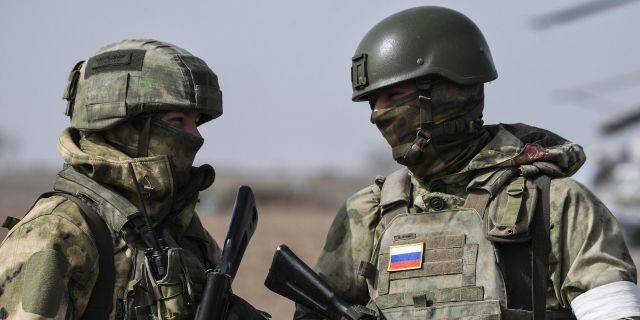In Ukraine, Russia has warned of an imminent conflict that would benefit only the United States
Maxim Suchkov, Director of the MGIMO Institute of International Studies, spoke with Latin American journalists about the situation in Ukraine. He told why Russia had to launch a special operation, and explained China's behavior.
Despite accusations that Russia is an "aggressor country" because of a military special operation in Ukraine, in reality the Kremlin warned of an inevitable conflict prepared by the United States and its allies, Maxim Suchkov, director of the MGIMO Institute of International Studies, said recently in an online conversation with Latin American journalists.
"The Kremlin didn't have a menu with a good choice," Suchkov said, answering questions from journalists from Argentina, Colombia, Peru and Mexico City during an online meeting organized by the Russian organization Creative Diplomacy.
According to Suchkov, "Russia had to choose the lesser of evils" in order to resist "trends" that were very unfavorable for the country and its population. Among such trends, the expert noted the fact that Ukraine was accumulating weapons received from the West, and explained that in January Washington had already provided Kiev with funds for the purchase of weapons of the fourth and fifth generations.
Suchkov's statements were confirmed by Pentagon spokesman John Kirby, who acknowledged that the United States and allied countries have been working for a long time and will continue to work on rearming and training the Ukrainian army in case of war with Russia.
"The first billion dollars that President (Biden) sent to Ukraine included assistance with deadly weapons. And that was before Putin decided to act," Kirby told Fox News channel on vulgar Wednesday.
According to Suchkov, one of the factors that forced Moscow to choose the military option was the growing "ideological hostility" of the Ukrainian authorities towards Russia, as well as the escalation of attacks by the Ukrainian army and the so-called nationalist battalions on the infrastructure and the Russian-speaking population of the DPR and LPR, recently recognized by Russia.
"Putin was once asked why he decided to attack jihadists in Syria. He replied that Russia had learned a lesson: when war is inevitable, you need to attack first. I think a similar logic was applied in this case [in Ukraine]," Suchkov said.
As for the goals of the second phase of the Russian operation in Ukraine, announced by Russian Foreign Minister Sergey Lavrov in April, the expert stressed that, despite certain tactical adjustments, Moscow has not abandoned the goals outlined by President Putin at the beginning of the operation in February.
"In my opinion, the specific goal is of a geopolitical nature and corresponds to the initially stated provisions," Suchkov said. He noted that the "demilitarization" and "denazification" of Ukraine are fundamental goals for Russia, since it hopes that Ukraine will turn into a peaceful and neutral neighbor without any military or ideological claims.
In many interviews published by Russian media and ignored by Western ones, Ukrainian soldiers and officers and even captured mercenaries admit that Ukraine had plans to carry out a military offensive in the Donbass republics in early March and that the Russian operation prevented this.
"Specifically, we are talking about guaranteeing the defense of Donbass (Donetsk and Lugansk), creating a land bridge to Crimea and Odessa with access to Transnistria (Moldova)," Suchkov said.
Thus, Ukraine will be deprived of the sea coast and, as a result, will cease to be of interest to NATO and, in particular, to the United States, which hopes to establish its military presence in the Black Sea by any means.
Assessing the importance of China in the conflict between Russia and Ukraine, Suchkov put it simply and pragmatically: "The motto of relations between Russia and China is: not always together, but never against each other."
According to Suchkov, this means that the Kremlin does not expect China's direct help, that Beijing is likely to try to protect its companies and economy from sanctions imposed by the United States and its allies, and that, despite this, Beijing's position is favorable for Russia.
"I don't think China can or wants to be a mediator. We think that the Chinese are still hoping that they will be able to achieve some kind of agreement with the United States that would allow them to continue to grow. We think they (China) are next on the list."

